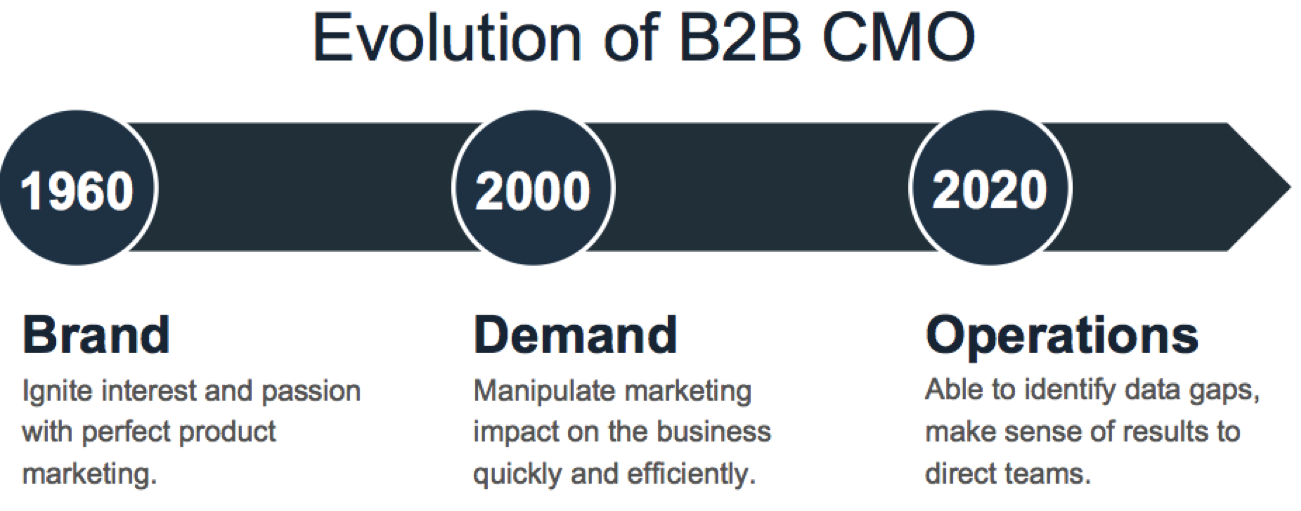This isn’t a very long post, but it’s an important one. I truly think the next generation of B2B Chief Marketing Officers will come from the Marketing Operations function. To illustrate my point, let’s look at where past and present CMOs have been sourced from.
Past: Brand (1960 – 2000)
This is the “Mad Men” era of marketing where the best ideas won. The people who could ignite interest and passion with perfect product marketing and heavy brand spending (taking advantage of broad scale visual media for the first time) were most respected and rose through the ranks to be CMOs.
Present: Demand (2000 – 2020)
This is the internet era, where the largest and fastest growth wins. The people who can intelligently manipulate marketing impact on the business quickly and efficiently are on a pedestal. For the first time, marketers are able to measure individual people and accounts for marketing optimization. Those who can harness these insights for meteoric growth, rise through the ranks to be CMOs.
Future: Operations (2020 – ?)
This will be the data era, where smarts will win. The people who know how to identify data gaps/issues, make sense of a world of data abundance and use this to direct teams, will be highly regarded and sought after. Naturally, the people on the marketing teams who are building strong knowledge and expertise in these areas are the marketing operations professionals.
Scott Brinker laid the foundation for this prediction in 2013 when he pinned a blog post titled In the land of marketing, operations may become king. Writing: Marketing operations leaders will be particularly well suited at the crossroads of marketing because they will be some of the few who speak all the key dialects of the Corporate Tower of Babel:
- “project and tech” to IT
- “balance sheet” to finance
- “pipeline” to sales
The growth of those three areas is rapidly happening. In 2015, the Marketing Technology Supergraphic included ~37 dashboard and data visualization tools, in 2016 that number jumped to ~73. That’s nearly 100% growth.
If this is any indicator of demand, it shows how important marketing operations is to an organization. Companies are ready to invest in making sure that marketing operations managers and technologists have the tools at their disposal to use data to derive insights.
With the ability for marketing operations to measure the impact of marketing, they become the leaders of growth. They have a deep understanding of the levers that drive growth, and understand the people and technology needed to hit goals.
Once they can communicate needs and accomplishments to other stakeholders in finance and IT, it’s easy to see that the future executives of enterprise companies will come from marketing operations.
A strong technical background, understanding of what drives business growth and the ability to use those skills across corporate divisions, is the trifecta that will boost marketing operations into the next CMOs.


